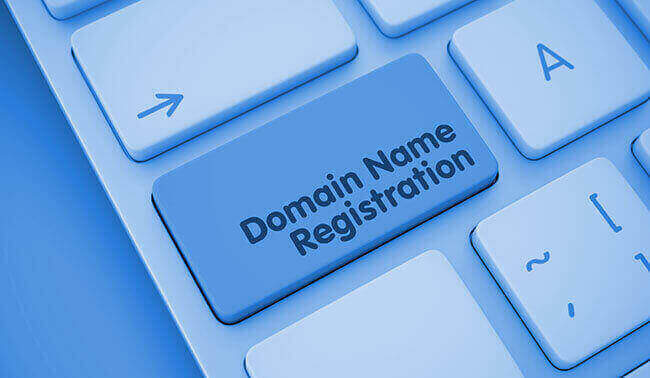
In simple terms, a web domain is a means of identifying or addressing a particular device on a network. More importantly, a domain name can be used as a means of identifying a brand or ownership of a particular website or resource on the internet.
Who owns a domain name?
No-one ever really ‘owns’ a domain, but registering a domain name gives you the exclusive right to its use for the period you have registered it for. Saying someone is the ‘domain owner’ is usually more readily understood than calling them the ‘domain registrant’ which is more correct.
As all domain names are unique, having your own domain name means that you can easily tell people how to find your own piece of the internet pie and at the same time allow them access to it. Simply type in your domain name into a web browser and your website should appear to be viewed.
Domain names can be registered by an individual or company for a particular period of time depending on how many years the person or company wants to “own” the domain name. Should the domain name registration not be renewed, then its registration lapses and the domain name becomes available for someone else to register it and “own” it and put it to their own use.
Meaning of a domain name simplified
All websites and servers on the internet actually have an internet protocol address or IP address so that they can be found. This is in the form of 4 groups of numbers nnn.nnn.nnn.nnn (for IPv4 addresses). The trouble is, as humans, these IP addresses are reasonably hard to remember and can easily be mIstyPPed or forgotten. What if there was an easier way to remember these IP addresses? That is where the domain name comes in. As every domain name is unique and every IP address is unique to a device or server on the internet, we can easily point a domain name to an IP address, so you no longer have to remember the IP address, just the domain name. Better yet, say you move your website from one web server with an IP address to a different web server with a different IP address? No, problem, just point your domain name to the new IP address, and your website at its new location can be found instantly using the same domain name.
What is a top level domain?
A domain name is made up of various levels and you tend to read them going right to left (and not left to right as you normally would). Take for instance www.mydomain.com … the ‘.com’ part is the top level domain or the first level part. This consists of ‘com’, ‘net’, org’, ‘gov’, ‘info’ etc., or other country identifiers like ‘uk’ or ‘nz’.
You would think that these top level domains for countries would be pretty stable wouldn’t you, but they are not. Certain countries break into 2 or more countries (eg. ‘Czechoslovakia’ into ‘Czech Republic’ and ‘Slovakia’) and so that neither has the original top level domain advantage, the original gets retired and taken out of use for a period of 50 years.
You can also get creative by using a top level domain for something other than what it was intended for. Even though ‘.de’ is the top level domain qualifier for German websites, if you registered ‘tra.de’ you could form the word ‘trade’ in English which is a clever way to get a memorable and short domain name. The next part of the domain name is the second level and third level which are the ones that you can be imaginative and make up something yourself to register. Not all second level domain names can be registered as they are dependent on the country (like ‘.co.uk’ or ‘.co.nz’), but for others as in the example above ‘mydomain.com’ you can register it (if available).
Difference between a website and domain name
If you were to draw the parallel with a property, a domain name is like the address. The address can have an empty plot of land or a building that’s constructed on that land. Similarly, when you register a domain name, you acquire an address that is similar to an empty plot of land. Once you have a domain name, you can get a web hosting plan, build a website and upload it to this address. Your website is like the building that is built on your domain name.
Difference between a domain name and URL
The domain name is the name that you register with a domain registrar. When you register a domain name, the domain name is assigned an IP address. Once you have a domain name and have signed up for a web hosting plan, you can start building your website on that domain name.
When you build a website, every element of the website including HTML pages, images, PDF files, flash files, videos, etc., need to have a name or location on the domain name. Each element of the site is identified by this name, that is also called a uniform resource locator or URL. The first part of the URL of every element on your website is always the domain name of your website.
Should you register a domain name?
Why not? Domain names are going fast, they are very affordable and easy to register, and even though you may not have a need for one today, you may like to have the peace of mind that one day in the future when you may need one, you already have a good one tucked away. Good domain names are also worth a bit of money, so if you can register a ‘good’ one, perhaps it will be worth holding onto it for an investment!
- Related Content
- Related Services

